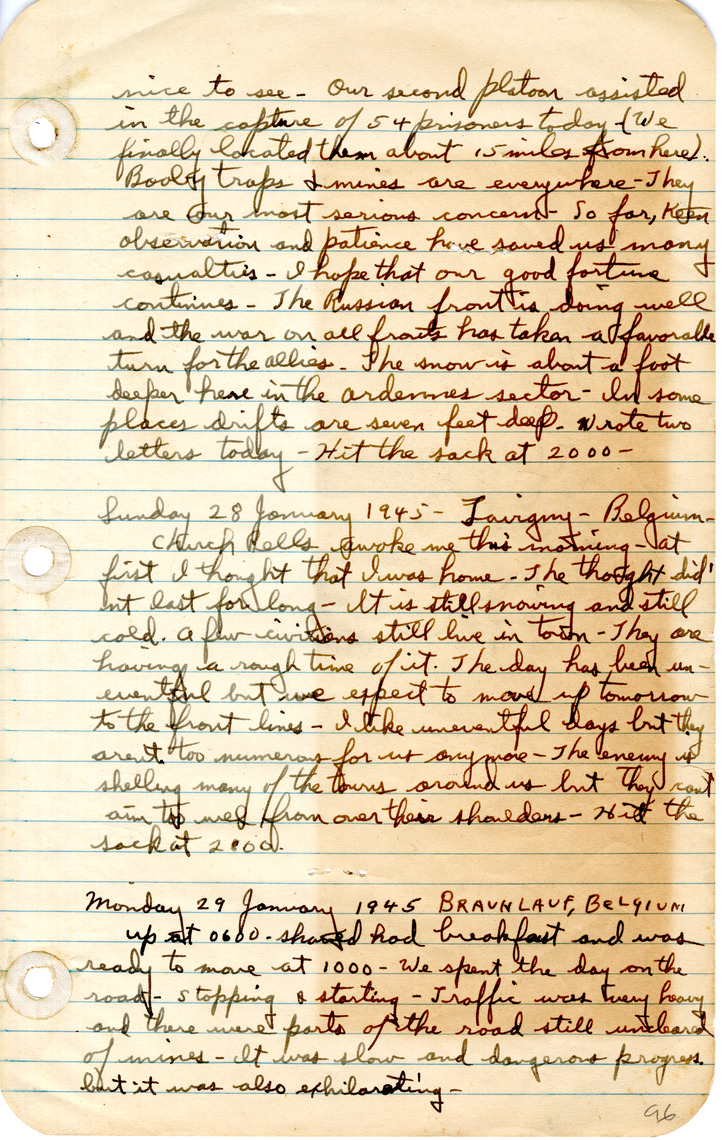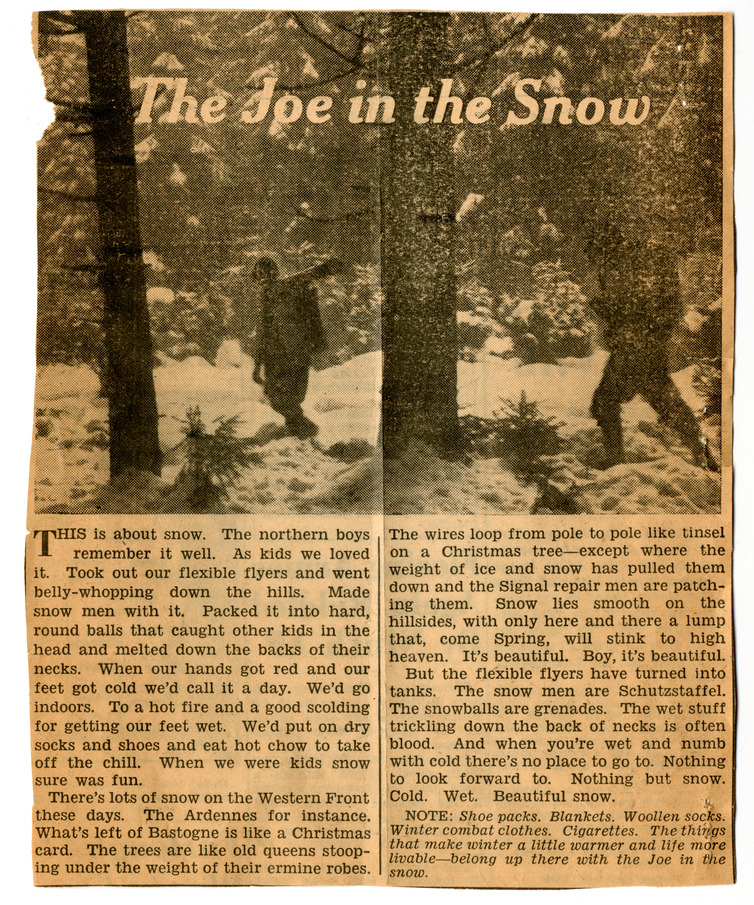[Continued from previous page] nice to see. Our second platoon assisted in the capture of 54 prisoners today (we finally located them about 15 miles from here). Booby traps and mines are everywhere. They are our most serious concern. So far, keen observations and patience have saved us many casualties. I hope that our good fortune continues. The Russian front is doing well and the war on all fronts has taken a favorable turn for the Allies. The snow is about a foot deeper here in the Ardennes sector. In some places drifts are seven feet deep. Wrote two letters today. Hit the sack at 2000.
Sunday, 28 January 1945 Tavigny, Belgium
Church Bells awoke me this morning, at first I thought that I was home. The thought didn’t last for long. It is still snowing and still cold. A few civilians still live in town. They are having a rough time of it. The day has been uneventful but we expect to move up tomorrow to the front lines. I like uneventful days but they aren’t too numerous for us anymore. The enemy is shelling many of the towns around us but they can’t aim too well from over their shoulders. Hit the sack at 2100.
Monday, 29 January 1945 Braunlauf, Belgium1Braunlauf is a town in southeastern Belgium, close to the border with Germany.
Up at 0600. Shaved, had breakfast and was ready to move at 1000. We spent the day on the road, stopping and starting. Traffic was very heavy and there were parts of the road still uncleared of mines. It was slow and dangerous progress, but it was also exhilarating. [Continued on next page]

